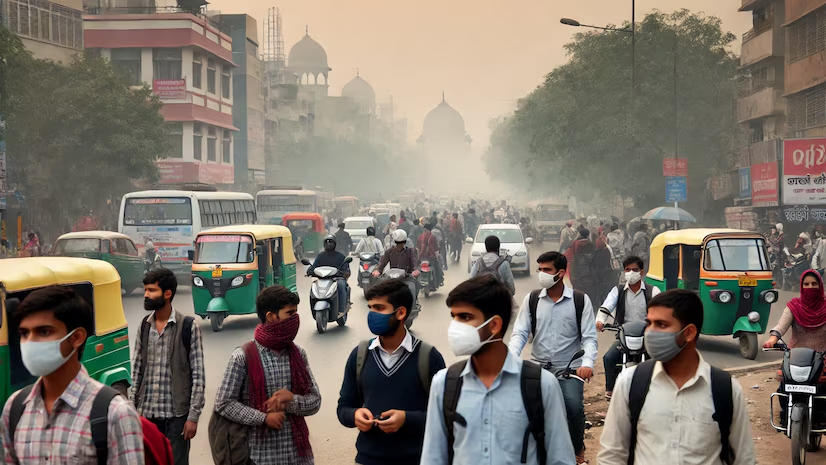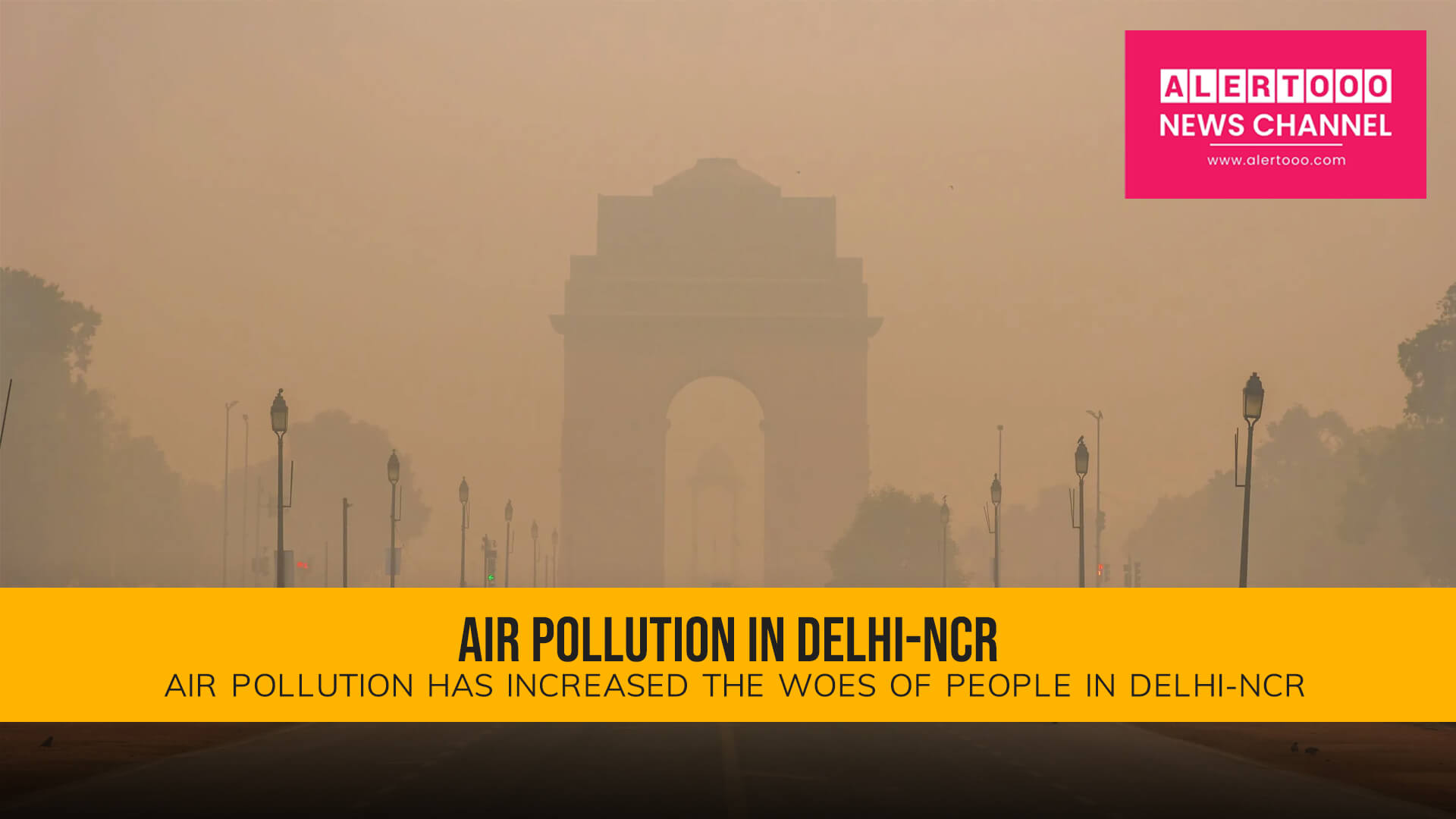New Delhi Desk (November 19, 2024): Air Pollution in Delhi-NCR: Air pollution has increased people’s woes in Delhi-NCR. The Air Quality Index (AQI) has reached hazardous levels. The most significant issues are in Noida, Ghaziabad, and Gurugram.
On Tuesday (November 19, 2024), many AQI stations recorded AQI levels exceeding 500, which is classified as severe. On the previous day, Monday, the AQI levels in these cities were also above 500. The Focal Wellbeing Secretary gave a refreshed warning on Monday concerning air contamination to states and association regions.

8 major updates on air pollution:
Jahangir Puri Stadium (500), Dwarka Sector-8 (498), Munkka (500), North Campus (500), RK Puram (499), and Wazirpur (500) recorded the worst AQI levels in Delhi at 5 AM.
In light of the increasing pollution, Delhi University has decided to close offline classes until November 23 and start online classes, while Jawaharlal Nehru University will do so until November 22. Additionally, schools in Delhi-NCR have been closed, and they have been ordered to conduct online classes. The worst air quality in these areas of Delhi According to the Central Pollution Control Board (CPCB), the AQI in areas like Anand Vihar, Ashok Vihar, Bawana, Jahangirpuri, Major Dhyan Chand Stadium, and several other locations reached up to 500 by 5 AM on Tuesday, raising concerns about health and safety.
Decision Taken By University’s & Schools
Delhi University stated via a notification that physical classes will resume on November 25, while online classes will continue until then. JNU additionally declared that it will hold all classes online until November 22. However, the universities clarified that there would be no changes to examination and interview schedules. The Delhi government has declared air pollution a medical emergency and urged institutions to take necessary measures in the interest of public health.
On Monday, the Delhi government announced that physical classes for grades 10 and 12 will remain suspended. Delhi’s Chief Minister Atishi posted on X that starting tomorrow, physical classes for grades 10 and 12 will also be suspended, and all classes will be conducted online. The Directorate of Education also issued a circular instructing principals of government and private schools to suspend classes for all students, including grades 10 and 12. NCR state legislatures and GNCTD might choose to close actual classes for grades VI, IX, and XI and conduct classes online.
The Central Health Secretary has also provided advice regarding pollution, recommending that states and union territories strengthen existing health systems and raise awareness about the dangers of air pollution. The warning recommends creating itemized activity plans at the locale and city levels to address the well-being effects of environmental change and techniques to battle air contamination.

After the Air Quality Index
(AQI) in the National Capital Region reached the ‘Severe Plus’ category, the Supreme Court directed on Monday that all states in Delhi-NCR immediately form teams to strictly enforce pollution control restrictions under the Graded Response Action Plan-4 (GRAP).
It additionally explained that the limitations will stay as a result until additional notification. The court emphasized that it is the constitutional duty of all states to ensure that all citizens live in a pollution-free environment.
Commission for Air Quality Management (CAQM) Air Pollution in Delhi-NCR
The Supreme Court criticized the Commission for Air Quality Management (CAQM) for delaying the implementation of the Graded Response Action Plan (GRAP) and stated that it had adopted an incorrect approach. Restrictions under GRAP-4 will include: Strict bans on the operation of medium goods vehicles (MGVs) and heavy goods vehicles (HGVs) running on diesel registered as BS-IV and below in Delhi.
However, authorities grant exemptions for vehicles used for essential goods or services. Similar to GRAP-3, restrictions will be placed on construction and development activities for public projects such as highways, roads, flyovers, overbridges, power transmission, and telecommunication pipelines. Authorities will prohibit the entry of trucks into Delhi (except for those carrying essential goods/services).
Notwithstanding, all LNG/CNG/electric/BS-VI diesel trucks will be allowed passage into Delhi. Except for EVs/CNG/BS-VI diesel, light commercial vehicles registered outside Delhi will not be allowed entry into Delhi (exemptions apply for essential goods/services). NCR state legislatures/GNCTD might choose to permit public, metropolitan, and confidential workplaces to work at half limit with the rest from home.

Employees in central government offices may be allowed to work from home. Authorities may urge citizens to follow the civic charter. In addition to the civic charters under GRAP-I, GRAP-II, and GRAP-III, individuals are encouraged to assist in maintaining and improving air quality in the area.
Medical professionals may advise youngsters, older people with heart and respiratory issues, and those battling neurological or chronic diseases to abstain from heading outside.
State governments may consider additional emergency measures, such as closing colleges/educational institutions, halting non-essential commercial activities, and permitting vehicles to operate on an odd-even basis based on their registration numbers.











